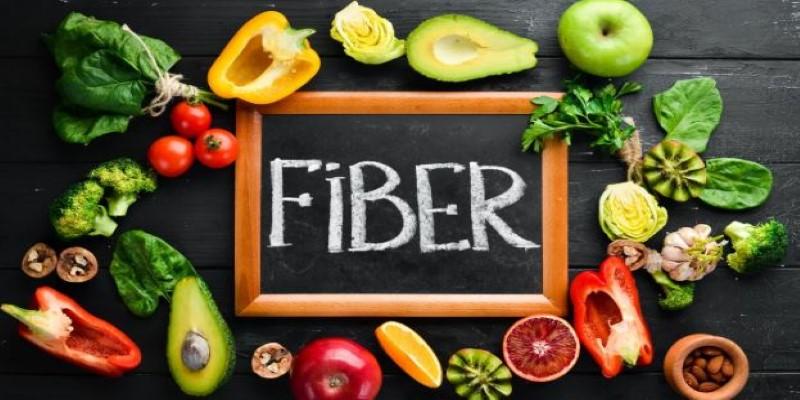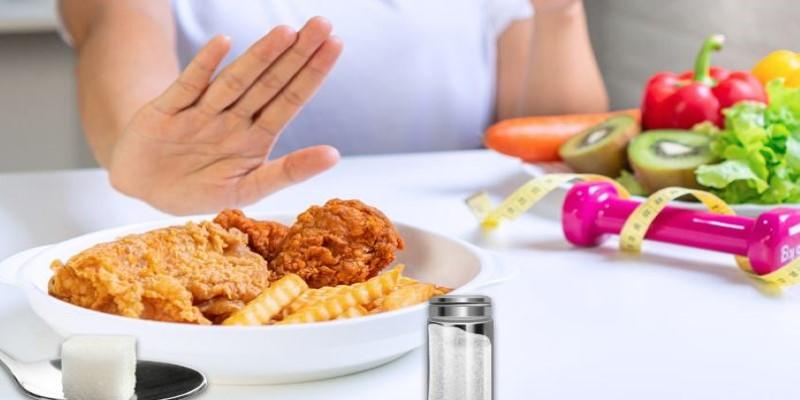The gallbladder doesn’t get much attention until something goes wrong with it. This small organ quietly stores bile and helps break down fat, yet its health can be the difference between smooth digestion and painful problems. Gallstones, inflammation, and discomfort often trace back to what we eat and how consistently we care for our digestion.
The good news is that small changes in daily food choices can go a long way. By leaning on natural, nutrient-rich meals and creating steady eating habits, you can keep your gallbladder working well and protect yourself from avoidable complications.
The gallbladder’s main job is to step in when fat shows up on the plate. It releases bile to help break that fat down so the body can use it. The challenge comes when the diet leans heavily on greasy fried foods or processed snacks, which make the gallbladder work harder than it should. A gentler way to go is choosing fats that are kinder to digestion—like those in olive oil, avocados, nuts, seeds, and fatty fish. These nourish the body without overwhelming the system. Even then, balance matters. Too much fat, no matter the source, can still leave the gallbladder under pressure.

Fiber supports digestion by helping food move steadily through the intestines. For the gallbladder, fiber can reduce the risk of gallstones by lowering cholesterol in bile. Whole grains, beans, fruits, and vegetables are dependable sources. Soluble fiber from oats, apples, and lentils binds to cholesterol and removes it from the body, while insoluble fiber from vegetables and wheat bran helps maintain bowel regularity. A balanced mix of both fibers keeps the digestive system stable and reduces strain on bile flow.
Dehydration thickens bile, making it harder for the gallbladder to release it smoothly. Over time, this can contribute to gallstone formation. Drinking enough water throughout the day thins bile and supports natural digestion. While the general guideline is about eight glasses daily, needs differ depending on activity, weather, and overall health. Herbal teas and water-rich fruits, such as melon and cucumber, can also contribute to hydration without placing stress on digestion.
Protein is important for tissue repair and overall health, but some protein sources are harder on the gallbladder than others. Fatty cuts of red meat, processed meats, or fried proteins can demand more bile release. Leaner options such as skinless poultry, fish, tofu, beans, and lentils supply necessary protein without overwhelming the gallbladder. Baking, steaming, or grilling are gentler cooking methods that help reduce unnecessary fat intake.
Carrying extra body weight is linked to higher chances of gallstones, yet losing weight too quickly can also increase risk. The gallbladder reacts poorly to sudden dietary shifts. The best approach is steady, gradual weight management. Eating smaller portions at regular intervals helps maintain a consistent flow of bile and avoids sudden surges that occur after large meals. This rhythm reduces gallbladder strain and supports stable digestion.
Fruits and vegetables not only provide vitamins and minerals but also support bile health. Citrus fruits, berries, leafy greens, and cruciferous vegetables, such as broccoli, provide antioxidants that help reduce inflammation in the digestive tract. Vitamin C, in particular, has been linked to a lower risk of gallstone formation. Dark, leafy greens provide magnesium, which plays a role in muscle relaxation and can help ease bile duct function.
A diet high in refined carbohydrates and added sugars can alter bile composition and increase the chance of gallstones. Foods such as white bread, pastries, and sugary beverages cause quick spikes in blood sugar, which can affect cholesterol processing in the liver and gallbladder. Choosing complex carbohydrates, such as brown rice, quinoa, and sweet potatoes, provides energy without the same negative impact on bile balance.
Dairy foods can be a good source of protein and calcium, but high-fat versions such as cream, cheese, and butter may trigger gallbladder discomfort. Low-fat or fat-free options, when tolerated, can provide nutrients without causing digestive strain. Yogurt with live cultures adds probiotics, which may aid digestion and balance gut health.

Highly processed foods tend to be loaded with unhealthy fats, sodium, and preservatives that can upset gallbladder function. Fast food meals, frozen fried products, and packaged snacks often combine these elements. Preparing meals at home with whole ingredients gives greater control over fat content and portion sizes, both of which are beneficial for the gallbladder.
How food is eaten matters nearly as much as what is eaten. Skipping meals can lead to bile buildup in the gallbladder, raising the chance of stone formation. Regular meal times encourage steady bile release. Eating slowly and chewing thoroughly helps digestion begin in the mouth, easing the workload further down the line. Listening to hunger and fullness cues can prevent overeating, which often leaves the gallbladder struggling.
Some studies suggest that moderate coffee consumption may reduce the risk of gallstones. Coffee stimulates bile flow, which may keep it from becoming stagnant. However, coffee should be consumed plain or with minimal additives, since high-fat creamers and sugary syrups can undo any benefit. For those sensitive to caffeine, it is best to limit intake and rely on other digestive-supportive habits.
While diet plays the lead role, lifestyle habits influence gallbladder health too. Regular physical activity supports healthy weight management and stimulates digestion. Stress management can also help, as chronic stress may influence hormone levels that affect bile release. Combining balanced eating with an active and mindful lifestyle strengthens the protective effect against gallbladder problems.
A healthy gallbladder diet is about steady habits, not strict rules. Eating lean proteins, whole grains, fruits, vegetables, and moderate healthy fats helps digestion flow smoothly. Staying hydrated, limiting sugar and processed foods, and maintaining regular meal times can lower the risk of gallstones and discomfort. With gradual improvements and balanced living, the gallbladder can quietly do its job, supporting overall health without causing pain or digestive disruption.
 TOP
TOP
Essential retirement planning strategies with age-based benchmarks to secure your financial future and achieve your unique goals.
 TOP
TOP
Explore how 529 plans can support education at trade and vocational schools, offering flexibility and financial aid options.
 TOP
TOP
How 529 plans offer tax-free education savings, minimal financial aid impact, and key advantages for covering college costs.
 TOP
TOP
How to choose the best 529 plan with tips on tax benefits, investment options, and maximizing savings for your child's education.
 TOP
TOP
How the SAVE plan transforms student loan repayment with lower payments, interest protection, and faster forgiveness.
 TOP
TOP
Explore Los Angeles with our insider's guide. Discover landmarks, beaches, culture, neighborhoods, shopping, and entertainment
 TOP
TOP
Explore Sicily villa rentals with comfort and charm. Enjoy beaches, culture, and authentic Italian living on your escape
 TOP
TOP
Explore family-friendly vacationing in Bar Harbor with Acadia hikes, kid activities, waterfront fun, dining, and lodging options
 TOP
TOP
A parent’s guide to understanding, detecting, and managing bone tumors in children.
 TOP
TOP
Can't afford closing costs? First-time buyers: discover strategies, assistance programs, and negotiation tips to cover fees
 TOP
TOP
Prepare for the Annapurna Circuit with essential tips on training, gear, and safety to ensure an unforgettable Himalayan adventure.
 TOP
TOP
Top hiking trails near Denver, from stunning red rocks to serene alpine lakes. Plan your adventure in Colorado's breathtaking landscapes today!